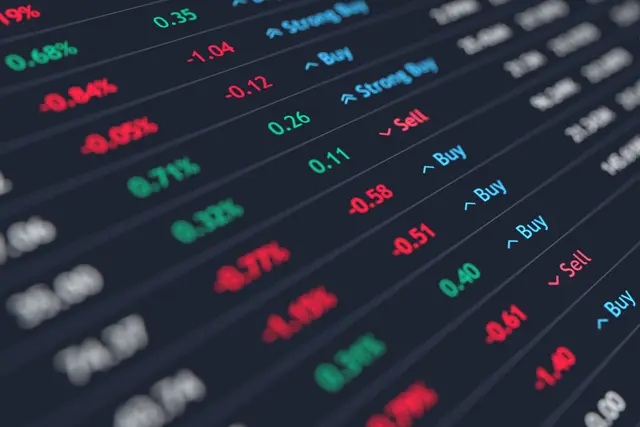
Apr 25, 2023 • Stocks
The Robinhood IPO: A Stock Market Fairy Tale Gone Awry
A Closer Look at the Factors Behind Robinhood's IPO Struggles

Once upon a time, in a land of retail investors, a brave little app named Robinhood set out on a quest to democratize finance for all. This mighty hero of the masses took its place on the battlefield, armed with commission-free trades and a slick user interface, ready to take on the mighty forces of Wall Street. But as the tale of Robinhood's initial public offering (IPO) unfolded, our plucky protagonist found itself facing a dragon named Disappointment.
Ah, the Robinhood IPO – an event that was supposed to be a crowning achievement for the company, akin to the sweet taste of victory that Frodo and Sam felt when they finally destroyed the One Ring. Alas, it turned out to be more like the bitter disappointment of finding out that the 'shortcut' you took added 20 minutes to your journey (thanks, Google Maps).
But, dear readers, let us regale you with the tale of how this once-promising saga turned into a mildly tragic comedy of errors.
Act I: An inauspicious debut
On a fateful day in July 2021, our intrepid hero – Robinhood Markets, Inc. – took its first steps into the realm of publicly traded companies, listing on the NASDAQ under the ticker symbol "HOOD." A brave move, one might say, especially given that many onlookers expected Robinhood to ride off into the sunset with bags full of gold from eager investors.
However, the reality was more akin to a pie in the face. Instead of a triumphant entrance, Robinhood's debut was more like that awkward moment when you trip on the red carpet at a glitzy Hollywood premiere. The stock opened at $38 per share, only to close down 8.4% at $34.82 on its first day of trading.
Act II: The plot thickens
As we delved further into the saga, we discovered that the rocky start to Robinhood's public life was no mere fluke. Nay, it was a harbinger of more strife to come.
You see, Robinhood had decided to allocate a significant portion of its shares to its own users in a move that was supposed to symbolize its commitment to democratizing finance. Alas, this generous offering turned out to be a double-edged sword, much like that time I tried to help my friend move only to break his grandmother's priceless antique vase (sorry, Dave).
Many retail investors, as it turned out, were not as enamored with the company as Robinhood may have hoped. Instead of scooping up the shares with the same gusto as a dog presented with a bacon-wrapped treat, these small-time investors began selling off their holdings. Robinhood's stock price dipped lower and lower, creating a sense of unease that spread throughout the kingdom.
Act III: The search for redemption
In the wake of this less-than-stellar IPO, our hero sought to reclaim its lost glory. Robinhood continued to grow its user base and expand its product offerings, seeking to win back the hearts of its people.
But as the old saying goes, "you can't polish a turd," and Robinhood's valiant efforts could not undo the damage done. The company's missteps, along with lingering controversies surrounding its business model and regulatory investigations, cast a long shadow over its performance.
Epilogue: Lessons learned
And so, dear readers, we arrive at the end of our tale. The Robinhood IPO, which was supposed to herald a new era of financial empowerment for the masses, instead serves as a cautionary tale – a reminder that even the most well-intentioned of heroes can falter.
Our plucky protagonist, Robinhood, may have stumbled on its journey, but it still soldiers on, seeking to right its wrongs and win back the faith of its loyal subjects. And as we watch the unfolding of this epic saga, we can all learn a few lessons from the trials and tribulations of our app-based hero.
Lesson 1: Hype is a fickle friend. Just as I learned the hard way when I threw a party expecting a hundred guests only for six to show up (and two of those were my parents), hype can be misleading. It's crucial to temper expectations and remember that the real world is often far less forgiving than the echo chamber of anticipation.
Lesson 2: The best-laid plans can go awry. In a twist straight out of a Shakespearean tragedy, Robinhood's decision to allocate shares to its own users backfired, much like the time I accidentally sent a snarky email about my boss to my boss. Sometimes, even the most well-intentioned plans can lead to unintended consequences.
Lesson 3: Redemption is possible, but it takes time. Robinhood's story is far from over, and there's always a chance for a hero to reclaim their place in the annals of history. After all, who doesn't love a good comeback story? I still remember the time I accidentally set my kitchen on fire, only to become a master chef years later (okay, maybe that's an exaggeration, but you get the point).
The tale of Robinhood's IPO serves as a cautionary tale for companies and investors alike. It's a story of high hopes dashed by harsh reality, of noble intentions muddied by unforeseen consequences, and of a hero that still has much to prove.
But as the curtain closes on this chapter of our saga, we can take solace in the fact that life, like the stock market, is full of surprises. And who knows – perhaps one day, Robinhood will rise from the ashes of its IPO debacle, wiser and stronger, to take its rightful place as a champion of the people.
For now, though, it remains a cautionary tale, a reminder that even the most promising of heroes can stumble, and a source of mildly humorous anecdotes for financial commentators like myself to regale you with on a slow news day.


